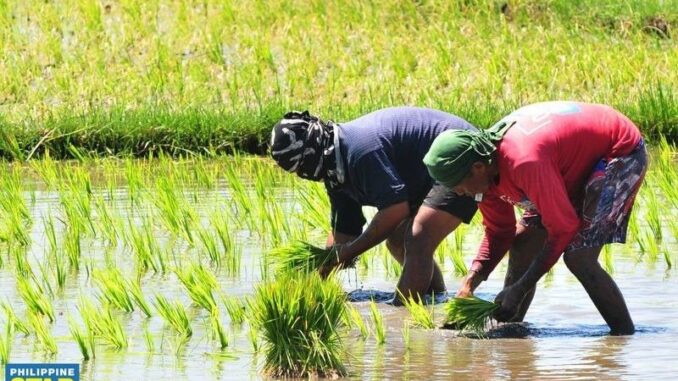
MANILA, Philippines — Rice farmers have the potential to reduce their carbon emissions and earn through carbon trading if certain policy changes are implemented by the government, according to the Philippine Rice Research Institute (PhilRice).
In a policy brief, PhilRice pointed out that the rice industry, which is the country’s second largest greenhouse gas (GHG) emitter, can be reformed to allow local farmers earn and sell carbon credits to boost their profits.
The Department of Agriculture-attached agency noted that rice farming accounts for 52 percent of the total agriculture emissions.
“Hence, rectifying certain practices in rice cultivation can substantially help reduce GHG emissions,” PhilRice said.
Some of the policy reforms PhilRice is proposing is the adoption by farmers of alternate wetting and drying (AWD), direct-seeded rice and aerobic rice.
Under AWD, rice fields are alternately flooded and non-flooded, thus saving irrigation water without sacrificing yield, according to the United Nations’ Food and Agriculture Organization.
“Studies have also shown that improving crop residue management, like incorporating compost rather than fresh stubbles/straw, can reduce GHG emissions,” it said.
PhilRice explained that rice farms’ methane emissions could be reduced by up to 50 percent through the effective management of water in the paddy by implementing AWD.
“With this, it is only sensible that farmers who employ AWD should be able to sell carbon credits, and thus, make money from it,” the agency said.
The policy brief also pointed out that there is a “gap” in the rice sector since there is currently no “actual” carbon credit trading or registered project despite the availability of several technologies that can reduce GHG emissions.
“Only recently has the AWD method gained traction as a potential technology for generating carbon credits,” PhilRice said.
“This development could mark the first instance of carbon credit trading in the agricultural sector,” PhilRice added.


Be the first to comment